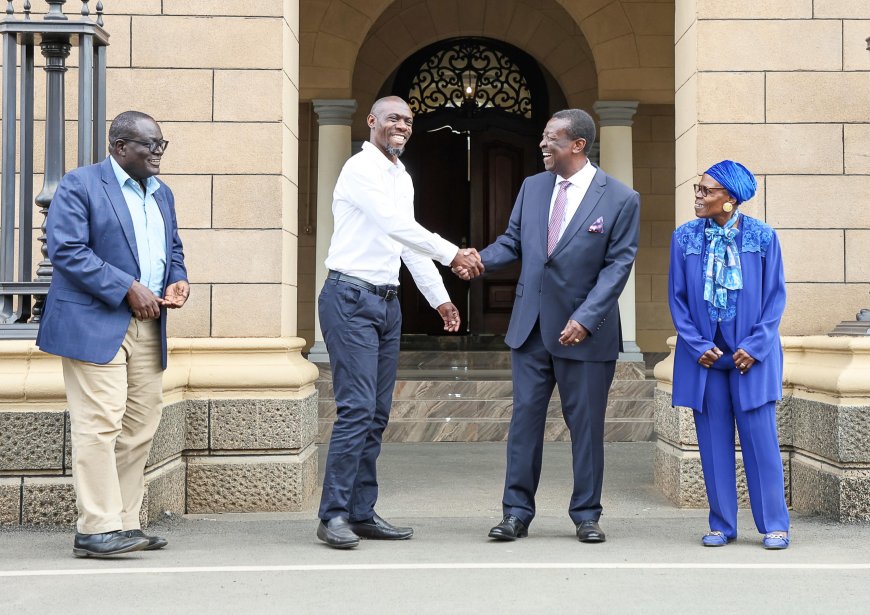
Kenya reaffirms diaspora support following Munyakho’s release
Prime Cabinet Secretary Musalia Mudavadi has affirmed Kenya’s commitment to safeguarding the rights and welfare of its citizens living and working abroad, stating: “Kenya will never abandon its people.”
Mudavadi made the remarks when he hosted Stephen Munyakho, a Kenyan who spent 14 years on death row in Saudi Arabia. Munyakho’s release marks the conclusion of months of intricate diplomatic negotiations between Nairobi and Riyadh.
He underscored that the Ministry of Foreign Affairs has a humanitarian—not judicial—role in assisting Kenyans facing difficulties abroad:
“We do not judge them when they face challenges. Our role is to ensure they get maximum help,” he said.
Munyakho’s release followed sustained high-level intervention from the Ministry of Foreign and Diaspora Affairs, the Presidency, and international partners.
Mudavadi disclosed that he personally wrote to Saudi Arabia’s Foreign Minister appealing for clemency after learning of Munyakho’s death sentence. He stated that this intervention led to a postponement of the execution originally scheduled for May 15.
According to Mudavadi, President William Ruto also played a crucial role, directly engaging with Crown Prince Mohammed bin Salman Al Saud to secure a diplomatic opportunity for negotiation.
Ultimately, the family of the deceased accepted diyya (blood money) amounting to approximately KSh 129 million, clearing the path for Munyakho’s freedom.
“This is the result of extraordinary efforts on multiple fronts,” Mudavadi remarked, commending the contributions of Munyakho’s family, the Kenyan diaspora, civil society, and the Muslim World League, which assisted in raising the required amount.
The Prime Cabinet Secretary revealed that nearly 1,000 Kenyans are currently facing legal challenges abroad. He reassured the public that the government continues to monitor each case through its diplomatic missions.
He also praised Munyakho’s family for their strength throughout the years of uncertainty:
“The fact that you did not despair is a miracle in itself. Your kind of resilience is hard to come by,” said Mudavadi.
Munyakho, visibly emotional, expressed profound gratitude:
“For the Kenyans who stood with me, contributed their money, and offered prayers—I cannot repay you, but I thank you,” he said.
Joseph Odindo, chair of the Bring Stevo Back strategy committee, echoed this appreciation:
“We are grateful to the President, Prime Cabinet Secretary, and the Muslim community for making our plea successful.”
Mudavadi also extended his thanks to the media for highlighting the issue and to the World Muslim League for its significant financial support:
“We are all happy that we remain committed to help each other,” he said.
